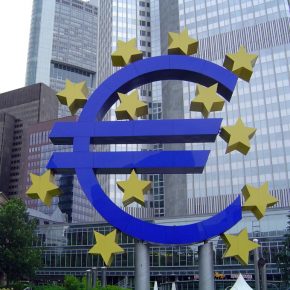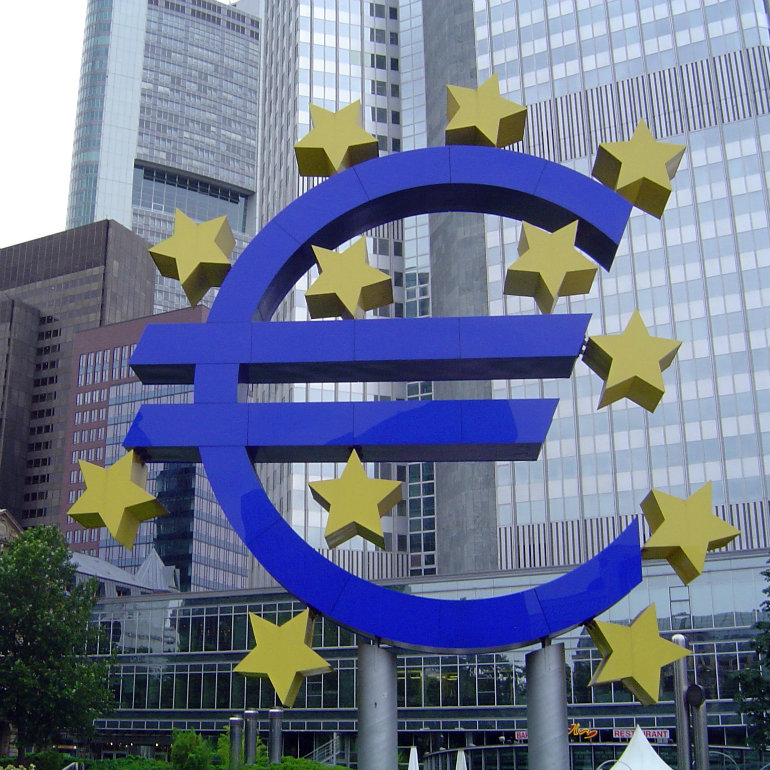
ECB headquarters, Frankfurt, Germany (Paul!!!, CC BY-ND)
“If economic trends are long-lasting, if we move closer to the European Union’s developmental average, and if our productivity continues to improve, I don’t consider [eurozone] accession baseless by the end of the decade,” Varga said. “However, this requires a more stable euro, together with a joint fiscal policy on a more secure standing.”
Varga added that he is in regular consultation with his counterparts in the Czech Republic and Poland, which – as does Hungary – meet all the requirements for adopting the currency – with the exception of their readiness to join the ERM-II system.
“However, as I see it, they are not rushing into things either,” the minister added. “I very much hope we will adopt the euro, but fortunately it’s up to us to decide when.”
EU member states wishing to join the Eurozone must maintain consumer inflation at no more than 1.5 percentage points over the three best-performing member states, a government deficit not exceeding 3 per cent of GDP, and state debt of no more than 60 per cent of GDP. In addition, their long-term interest rates must be no more than 2 percentage points over the rate of the three best-performing member states, and they must join the ERM-II system, the waiting room for euro adoption, for at least two years without severe tension, MTI added.
Commenting on these criteria, Varga said that the latest convergence report by the European Commission and European Central Bank showed that Hungary only fails to meet the state debt criterion. He noted that inflation during the period covered by the report stood at 0.4 per cent, under the 0.7 per cent reference value; long-term interest rates stood at 3.4 per cent, against the reference value of 4 per cent; and the fiscal deficit was well under 3 per cent of GDP. He added that while state debt stood at over 60 perc ent of GDP, it has been on a declining trend for five years, which conforms to expectations.
Political reactions
Meanwhile, the opposition Socialists dismissed Varga’s remarks on joining the euro as “farcical,” insisting that ruling Fidesz “aims to quit the European Union rather than adopt its currency.” The Socialists referred to Prime Minister Viktor Orbán as saying years ago that “there is life outside Europe”, and said that his ministers recently “made it clear that they want to drive Hungary out of the EU.”
The leftist Democratic Coalition (DK) welcomed Varga’s “apparent change of heart”, saying the best way to promote Hungary’s national interests would be to adopt the euro. DK board member Szabolcs Kerék-Barczy called on Fidesz “to decide whether they agree with Varga or wish to continue fighting against the EU, Hungary and its citizens”. Should Fidesz back Varga, the ruling party “must immediately stop its hate-mongering” against the EU and drop the upcoming quota referendum, seen as the first step in “the process of Hungary’s departure from the EU”, he said.
The ruling Fidesz party said that “it is not the EU and Hungary’s membership in it that is the problem but the erroneous migration policy of Brussels”.


